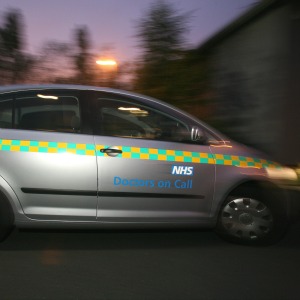Provide same-day advice to reduce A&E attendances, GPs told

GPs need to make sure they see or speak to patients seeking urgent advice on the same day that they receive the request, NHS England says as it lists how GPs can reduce A&E attendances.
The directive is one in a long list of ‘best practice’ guidance for GPs that has come out of NHS England’s major review into how urgent care services can be reorganised so that fewer people attend A&E departments and are admitted to hospital in an emergency.
Others include asking GPs to prioritise urgent home visit requests, do morning rounds with patients in community care beds, participate in regular meetings of the local ‘system resilience group’ – the multidisciplinary groups set up to improve urgent care planning locally – and risk-stratify frequent users of mental health support services.
The Transforming urgent and emergency care services in England document said that ‘the overall aim should be that no patient should have to attend A&E as a walk-in because they have been unable to get an urgent appointment with a GP’.
For example, it said GPs should offer ‘a range of options’ to patients seeking urgent advice.
The report said: ‘These may include telephone consultations, e-consultations and walk-in clinics, as well as face-to face appointments. Channelling patients into a single, rigid process inevitably disadvantages some, can lead to ‘gaming’ of the system and may lead to inappropriate use of emergency departments.’
It further suggested GPs hold a telephone consultation with hospital doctors before patients with complex health issues are discharged, that GPs must be informed every time a patient is admitted to hospital for a condition that was ‘preventable with good quality primary care’ and that GPs carry out reviews of care home residents and always discussed with the patient’s care team before any patient is admitted from a care home.
Related articles
CCGs told to ensure ‘no patient’ attends A&E because they can’t see GP
Government should ‘pause’ GP seven-day access plans, say researchers
GP-led scheme reduced emergency admissions by ‘more than a third’
The report also says GPs should provide early morning appointments for children who have deteriorated in the night ‘to avoid parents attending A&E because of anxieties and doubt they will get an appointment’.
But Dr Richard Vautrey, deputy chair of the GPC, warned practices would need investment to expand services in order to offer any greater same-day access.
Dr Vautrey said: ‘We know practices are under massive pressure and have not had the investment into their services in the way A&E has had the investment in recent years and hospitals have had this with extra staff – we’ve actually seen the reverse happening.
‘So if NHS England are serious about reducing the pressures they need to be serious about finding the solutions, which is about identifying proper resources for the longer so practices can expand services, provide the extra staff and meet the growing the needs of the population.’
Dr Vautrey also questioned whether the same-day appointments would help to cut A&E attendance.
He said: ‘The evidence suggests it’s little to do with the GP appointments – many practices have excellent access in terms of getting appointments and being able to get through on the phone, yet patients will still got to A&E because they perceive that is the right place for them.’
The report follows a list of urgent care advice given by NHS England to CCGs in May, including stipulating that no patient should attend A&E because they could not get a GP appointment.









